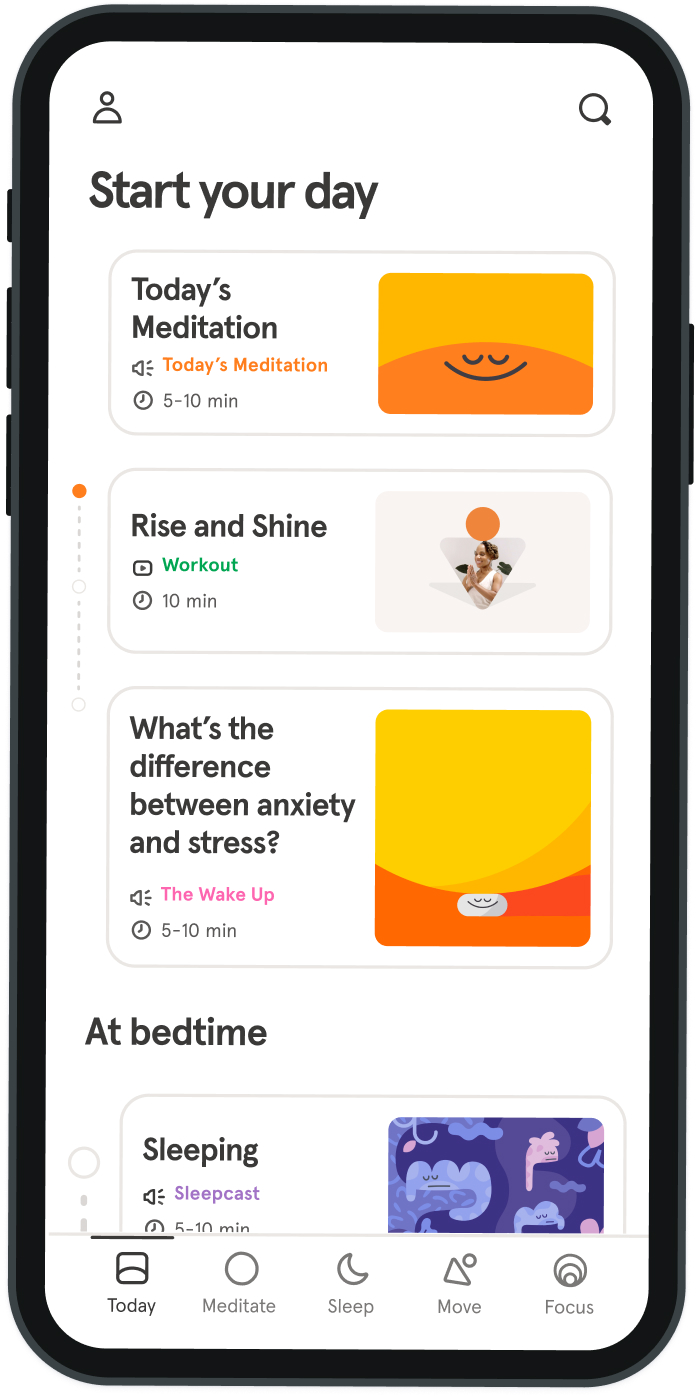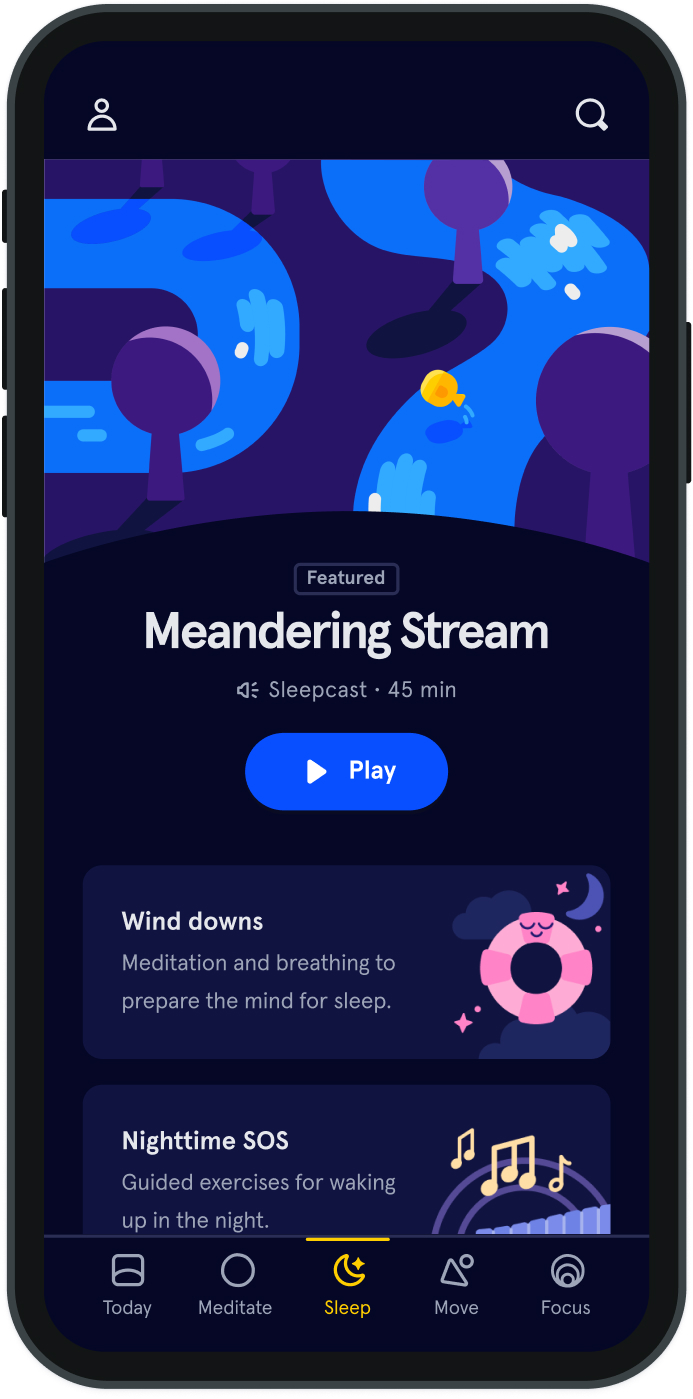What to expect when you’re expecting the worst
Often when I'm on the verge of a big decision, I hesitate. Whether I’m about to make the first move on a new project or take care of my finances, anxiety makes me procrastinate.
I’ll busy myself with little things, from responding to email all day to deciding the house needs a thorough and impromptu spring cleaning. I’ll come back to the task at hand and feel the hard pit of fear settled in my stomach. Not just yet, I’ll think to myself, and find the next wrench in my procrastination toolbelt. Taking action somehow seems scarier than standing still, but what exactly am I afraid of? “Fear is a natural, protective response to a threat,” says Melody Wilding, a licensed therapist and coach who helps clients overcome emotional challenges. “But with anxiety, we get afraid when we’re not really in danger. Mainly, take physical sensations out of context. You may feel like you’re going crazy, but that’s not a fact. Reminding yourself of this is a simple self-therapy technique you can use to immediately challenge anxious thoughts and loosen their grip.”
Though it may seem counter-intuitive, walking myself through the worst possible outcome can often alleviate my fears. It shows me that inaction is actually scarier than moving forward. When I am about to start a new project, it may feel like my whole life hinges on its success, and therefore it feels easier not to start. However, if I run through failed projects in my head, the results were not disastrous—in fact, they were learning experiences. Perhaps someone will think I did a terrible job, or I will regret putting it out into the world, but not starting will haunt me much more than failure. My anxiety isn’t based in reality, and once I can see that, it becomes easier to move forward. Wilding advises interrupting anxious thought patterns with questions that will help clarify your fears: “Ask yourself, ‘What does this situation remind me of? When have I encountered a similar problem before?’ Instead of being a prisoner of your past, use it to inform problem-solving in the present and propel you ahead. You can integrate this type of self-talk in with other pattern interrupters like deep breathing, meditation, or a full body scan.” When I see that the worst that can happen isn't all that bad, it allows me to be more mindful about what emotion is driving my decisions, and helps me move past the fear that is holding me back. Going through the worst case scenario can also reveal that it is far from the likeliest outcome. What are the chances that things will turn out catastrophic? What are the chances that this will bring joy and success into my life? These are the sorts of questions I need to ask myself instead of hiding from the action I need to take. “Fear will show up every time you’re doing something that will grow you,” says Wilding. “Greet it without judgement, It’s not an evaluation of your self-worth, rather it’s a call to arms asking you to step even further into your greatness.” Change and growth can be uncomfortable, but overcoming your anxiety and taking that first step forward will lead you to a far better place than lying stagnant in fear.
So how do we overcome anxiety and start moving forward when we’ve convinced ourselves that something horrible is going to befall us? Though it may seem counter-intuitive, walking myself through the worst possible outcome can often alleviate my fears. It shows me that inaction is actually scarier than moving forward. When I am about to start a new project, it may feel like my whole life hinges on its success, and therefore it feels easier not to start. However, if I run through failed projects in my head, the results were not disastrous—in fact, they were learning experiences. Perhaps someone will think I did a terrible job, or I will regret putting it out into the world, but not starting will haunt me much more than failure. My anxiety isn’t based in reality, and once I can see that, it becomes easier to move forward. Wilding advises interrupting anxious thought patterns with questions that will help clarify your fears: “Ask yourself, ‘What does this situation remind me of? When have I encountered a similar problem before?’ Instead of being a prisoner of your past, use it to inform problem-solving in the present and propel you ahead. You can integrate this type of self-talk in with other pattern interrupters like deep breathing, meditation, or a full body scan.”
Read more: 4 things to remember next time you're spiraling
When I see that the worst that can happen isn't all that bad, it allows me to be more mindful about what emotion is driving my decisions, and helps me move past the fear that is holding me back. Going through the worst case scenario can also reveal that it is far from the likeliest outcome. What are the chances that things will turn out catastrophic? What are the chances that this will bring joy and success into my life? These are the sorts of questions I need to ask myself instead of hiding from the action I need to take. “Fear will show up every time you’re doing something that will grow you,” says Wilding. “Greet it without judgment, It’s not an evaluation of your self-worth, rather it’s a call to arms asking you to step even further into your greatness.” Change and growth can be uncomfortable, but overcoming your anxiety and taking that first step forward will lead you to a far better place than lying stagnant in fear.



Be kind to your mind
- Access the full library of 500+ meditations on everything from stress, to resilience, to compassion
- Put your mind to bed with sleep sounds, music, and wind-down exercises
- Make mindfulness a part of your daily routine with tension-releasing workouts, relaxing yoga, Focus music playlists, and more
Meditation and mindfulness for any mind, any mood, any goal

Stay in the loop
Be the first to get updates on our latest content, special offers, and new features.
By signing up, you’re agreeing to receive marketing emails from Headspace. You can unsubscribe at any time. For more details, check out our Privacy Policy.
- © 2025 Headspace Inc.
- Terms & conditions
- Privacy policy
- Consumer Health Data
- Your privacy choices
- CA Privacy Notice
